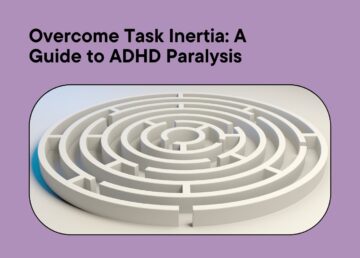
Discussions about how to recover from burnout – a condition of immense stress – have been on the rise in the past decade.
Many promote work-life balance and time management skills as the panacea to this condition. Although these factors are viable and must be considered, the critical issue often lies deeper – the general culture and perception of work.
To begin recovering from burnout, the approach to employment, its value, and lifestyle has to change.
If you are unsure whether you’re burned out, you can review the burnout symptoms or look at the burnout stages to evaluate your feelings.
Hustle Culture and Burnout
Hustle culture, also called burnout culture, is a mentality that one must work long hours and sacrifice personal life to be successful and recognized at work.
Many people crave success in their industry, so getting on the hype of working long hours to deliver results is relatively easy. Still, the glorification of hectic workdays and minimal rest is seriously harmful to mental health.
The competition of “who is the busiest” becomes mentally and physically straining quite fast, and the winners spend months recovering from burnout instead of getting a desired reward.
Hence, dismissing the hustle culture and reevaluating how we perceive work is vital.
#1 Redefine your definition of success
Many talk about success, but what does “successful” mean? Interestingly, there is no correct answer.
Thus, when recovering from burnout, dismissing the expectations of others and defining what professional success means to you is vital.
Success has many faces, and it’s absolutely okay to aim for the following:
- A stable income that allows you to live comfortably
- A position that is not managerial or the highest on the seniority level
- Freedom to organize and plan your own schedule
- An ability to spend your after-work hours as you desire
#2 Set clear goals and boundaries
Let’s say you decide to take a 20-mile hike. To reach your final destination, you need to plan a route, take a few breaks, and pick a comfortable pace.
Otherwise, you will be completely exhausted or even lost at the end of the trip.
The same logic applies to work. To achieve success, you need goals – working endlessly is simple if you don’t know what you’re working toward.
Here, boundaries act as breaks and a comfortable pace. You can work non-stop for personal or company goals, but is success more valuable than feeling well?
Be fair with yourself and assert boundaries that allow you to have a fulfilling life beyond work.
Overtime – is it worth it?
If you decide to work overtime, be mindful of the time. Additional hours are sometimes okay, especially if your schedule is free. However, spending your nights on work-related projects everyday disrupts everyday life.
Don’t agree to work overtime if you’re exhausted. Instead, spend time with your friends and family or do a relaxing activity, and pick up the pace on your next shift.
#3 Evaluate your habits
There is no perfect schedule for life. Some people wake up as early as 5 AM, work long hours, find time for exercise and socialization, and feel perfectly fine. Sadly, that’s not the case for everyone.
If you hate waking up at 5 AM and taking the morning run, why force yourself to do it? Getting up at 7 and doing a low-impact exercise in the evening might be a much better choice for you.
Somebody else’s perfect routine won’t do wonders if you have to force yourself into it.
Sit down and thoroughly consider how you want to feel and what brings you closer to who you want to be.
One Step Closer to Recovering From Burnout
Other factors play a significant role in developing and recovering from burnout: workplace culture, industry and occupation, personal traits, and many others.
Hence, Sensa offers a structured, cognitive behavioral therapy-based solution and guidance to tackle contributing factors and helps build resilience against burnout in the long run.
Recovering from burnout is not easy, but so is living with it. Therefore, the first change on the road to recovery has to happen in your mindset and attitude.
When you know the culprit, it’s much easier to overcome it.
Do it for you.





